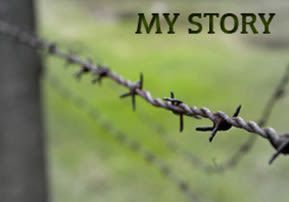
My Story
When they asked my mother for jewelry and furs, she said she had none. So they shot her and my older sister too...

When they asked my mother for jewelry and furs, she said she had none. So they shot her and my older sister too.
How did I survive? When a person is in trouble he wants to live. He fights for his life…Some people say, "Eh — What will be, will be." No! You have to fight for yourself day by day. Some people did not care. They said, "I do not want to live. What is the difference? I don’t give a damn." I was thinking day by day. I want to live. A person has to hold on to his own will, hold on to that to the last minute.
I am from Warsaw. I lived in Praga, which is the part of the city across the Vistula river. I had a nice life there; I had my own shop where I used to make fur coats. In Warsaw when a Jewish holiday came we used to know it was a holiday. All the stores were closed, and the people were in the synagogues.
Out of the 78 people in my family, I am the only one to survive. My parents had 3 boys and 3 girls: My parents were Jacob and Toby; my brothers were Moishe and Baruch, and my sisters were Sarah, Rivka and Leah. They were all killed.
My mother and my older sister were killed in the last week of January 1941. The year 1941 was a cold winter with a lot of snow. One morning the SD and the Jewish police caught me in the street. I was forced to work with a lot of other people clearing snow from the railroad tracks. Our job was to keep the trains running.
When I returned to the ghetto I found out that my mother and older sister had been killed. The Germans demanded that the Judenrat collect gold and furs from the people in the ghetto. When they asked my mother for jewelry and furs, she said she had none. So they shot her and my older sister too.
My father was killed in April 1942. He went to buy bread from the children who were smuggling food into the ghetto. The children brought bread, potatoes and cabbages across the wall into the Warsaw ghetto. A Jewish policeman pointed out my father to a German and told him that he saw my father take a bread from a boy at the wall. The German shot my father in the back.
The deportations started on July 22, 1942. My other 2 sisters and 2 brothers went to Treblinka. After that I never saw anybody from my family again.
I am a furrier. In the ghetto I worked at Tobbens’ shop. We made lambs’ wool jackets for the German army. These were short jackets; today we would call them Eisenhower jackets.
For lunch they gave us bread and soup. In the evening we got another bread and coffee. When Poles came to the shop, we could trade with them for extra food. We gave them a few shirts for a piece of salami and some bread or potatoes to make a soup. But how long could our situation last?
One day there was a selection and I was pulled from the shop. However, I was lucky because a Volksdeutscher told them I was a good worker. So I was allowed to go back to the shop, and someone else was put in my place.
A friend told me that he saw one of my sisters working at Shultz’s shop. I wanted to see her, but I was 3 kilometers away and I did not know how to get there. A Jewish policeman told me that he could get a German soldier to go with me and bring me back. It would cost 500 zlotys, which was a lot of money, but I said OK.
The soldier put me in handcuffs, and he walked behind me with a rifle like I was his prisoner. When I got to Shultz’s shop, I could not find my sister. Then I found that I was stuck there. I could not go back because the ghetto had been surrounded by German soldiers. The next morning was April 19, 1943, which was the day the Warsaw Ghetto Uprising began.
On May 1, 1943, I was shot in the right ankle. The bullet went through the meat and not the bone, so I did not lose my leg. I was taken to the Umschlagplatz. The Treblinka extermination camp could only take 10,000 people a day. In our group we were 20,000. They cut off half of our train and sent it to Majdanek concentration camp. Majdanek was another death camp.
At Majdanek they took our clothes and gave us striped shirts, pants and wooden shoes. I was sent to Barracks 21. As I lay in my bed, an older man asked me how I was. He said, "I can help you." He had been a doctor in Paris. He took a little pocket knife and operated on me. To this day I do not understand how he could have kept a knife in the camp. There were no medicines or bandages. He said, "I have no medication, you have to help yourself. When you urinate use some of the urine as an antiseptic on your wound."
We had to walk 3 kilometers to work. I had to hold myself up straight without limping and walk out of the gate of the camp. I was scared. If I limped, they would take me out of line. At Majdanek they hung you for any little thing. I did not know how I would make it. God must have helped me and, I was lucky.
We stood at the appell in our wooden shoes. Then when we got out of the gate we had to take off our wooden shoes and tie them over our shoulders with a piece of string. We had to walk to work barefoot. There were little stones on the road that cut into your skin and blood was running from the feet of many people. The work was dirty field work. After a few days some people could not take it anymore, and they fell down in the road. If they could not get up, they were shot where they lay. After work we had to carry the bodies back. If 1,000 went out to work, a 1,000 had to come back.
One day as we were standing at appell, a man in the back of the line smoked a cigarette. Heavy smokers would find a piece of paper and light it just to feel like they were smoking something. A German, the Lagerfuhrer, came up riding a tall, black horse. The horse had a white patch on his head and its legs were white too. It was a beautiful horse. The Lagerfuhrer held a whip in his hand. This man was a monster. It was late in the day and the sun was going down. He saw the smoke from the cigarette.
The Lagerfurhrer looked down at us and demanded to know who had smoked a cigarette. No one answered. "I am going to hang 10 dogs," he said. "I will give you 3 minutes." They called us dogs because we had tags with our numbers on them; my number was 993. We looked from one to the other, but no one answered.
The Lagerfurhrer did not wait 3 minutes; he did not wait 2 minutes. He took his whip and he cut off 2 rows of 5 prisoners. I was in the group of 10.
He asked, "Who wants to go up first on the bench?" You had to go stand on the bench and put the rope around your neck. I was in the first three to go up on the bench. I climbed up and put the rope around my neck.
He started beating us. He beat me so much the blood was running down my head.
Before this happened, a soldier had come to Majdanek for the purpose of selecting three groups of 750 people to take to another camp. I had been selected to be in the second group of 750. This soldier had been in Lublin at the main office processing our papers. While I was standing on the bench, the soldier came back to the gallows area.
When he saw what was happening, he started hollering, "Halt, Halt! What is happening here?"
The Lagerfurhrer said, "A dog smoked a cigarette. They won’t say which one, so I am going to hang 10 dogs."
"Whose dogs?" the soldier asked. "I have papers to transfer these people, and I cannot bring in dead dogs. I have to bring them alive."
The soldier took off the rope that had been around my neck. All it would have taken was a few seconds more and I would have been dead. He just had to kick out the bench. The soldier beat us until we jumped down from the bench and got back into the line.
The soldier took us to the railroad tracks, he put us on a train and the next morning we left Majdanek. I had been there 9 weeks. We were on this train for two nights and a day with no food or water. In my 9 weeks at Majdanek I had not changed my shirt or washed myself. We were eaten up with lice, and many of us were swollen from hunger.
When we got off the train, we saw that we had arrived at Auschwitz. There was a selection and some of us were machine gunned in a field there. They did not take them to the gas chambers.
I was taken to get a number tattooed on my arm. I got Number 128232. The separate numbers add up to 18. In the Hebrew language the letters of the alphabet stand for numbers. The letters which stand for the number eighteen spell out the Hebrew word "Chai,"which means life. After I was tattooed, I was given a potato.
I was first sent to the camp at Buna. After I got out of quarantine, I was put to work building railroad tracks. The Capo there was a murderer. I am short, and he would put a short man together with a tall man to carry twenty-foot lengths of iron. The tall man I worked with had to bend his knees.
One time I fell down and could not get up. The Capo started screaming and beating me, and he pulled me aside. There was a selection, and we had to take off our clothes and stand naked the whole night. The next morning a truck with a red cross came, and they pushed us into it, one on top of the other. We thought that they were going to take us to the gas chambers.
Instead, we were taken to the Auschwitz I camp. A Polish man came out of a building, and he asked us to call out our numbers. I said, "128232." He looked at a paper and asked my name? I said, "Szlama Radosinski," which is my name in Polish and doesn’t sound like a Jewish name. He asked me where I was from? "Warsaw," I said. How long was I there? "I was raised there," I said.
He started to cuss me like I never heard before in my life. He pulled me out of the line and put me in a corner. He said, "Stay here." He brought me a piece of blanket to cover myself with. I was freezing, so he brought me inside the barracks.
I lay down. I did not know what was happening or what to think. A young guy came up to me and said, "I know you." I asked him, "Who are you?" He said his name was Erlich and that he knew me from Majdanek.
I asked him what this place was. He said it was the hospital barracks, Block 20. He told me, "It is very bad here. Dr. Mengele comes two times a week to make selections. But this is Tuesday and he will not come again this week. I will let you know what is going to happen." I had not eaten since Monday. He gave me a slice of bread.
Erlich had been there 5 weeks. He had come from Majdanek to Auschwitz the same day as I did. Two of the doctors at the hospital knew his grandfather, who had been their rabbi in Cracow. They had hidden him from Dr. Mengele.
Those doctors had tried to help hide Jewish people in Cracow. When the SS came, they killed the Jews they hid and took the doctors to Auschwitz.
On Thursday Erlich came to me and said, "You have to get out of here." I said, "What am I going to do–jump from the second floor window?" In the afternoon he came again and said, "You have to get out of here, or after tomorrow you are going to be dead." About an hour later a man came in and sat at a table. He asked, "Who wants to go to work?" The Poles in the hospital were not worried about going to work. Why should they go work when they were getting packages from the Red Cross and having enough to eat?
I had to get this work. The man at the table asked me my number and then he cussed me out. I begged him, "I want to go out. I have friends outside. Please let me out." He gave me a piece of paper that said Block 6.
I walked to Block 6, and I showed the paper. The man there said, "I cannot let you in until 9 o’clock at night." I stayed there until the men returned from work. One man asked me, "You are new here; where are you from and what did you do?" I said, "I am from Warsaw and I was a furrier." He asked me where I lived, and I told him. He asked me if I knew a certain man’s name and I said, "Yes, he is a furrier too, and he lives in such and such street."
One of the men said, "I don’t believe you; what is this man called? He has a nickname." I said, "This man has a little piece of skin hanging down by his left ear, and they call him ‘tsutsik’ (Yiddish=nipple)." When I said this, they started to help me. They brought me a big piece of bread and some cold soup.
They asked me where I was going to work, and I showed them the piece of paper. They said, "Oh, No! You will not make it over 8 or 10 days in that job." The job was to work in a coal mine. "The longest anyone lives in that job is two weeks. After that they go to the crematorium." I was scared. My number was registered as working there. I said, "If I do not go there, then I am going to be hanged next to the kitchen, and the prisoners are going to walk by me."
They said, "Don’t worry." One guy calls another guy and says, "Go fix this!" They went to the Capo with the piece of paper. This Capo was a murderer. He had a green triangle. The Germans opened up the jails and they made the prisoners our bosses. Some of the boys worked in Canada. When the transports came they separated the valuables. They risked their lives to smuggle out gold and other things. Every day they brought this Capo cigarettes or salami, so he said, "Yes."
The next morning they woke me up and they took me with them. They put me in the middle of the line and we walked together out of the gate. They told me that as soon as we get out of the gate, I would be safe because over 6,000 prisoners walk out of the gate every day and nobody knows who is who.
There was a beautiful orchestra playing by the gate. They would not let me go to the other job. I stayed with them until the last minute when Auschwitz was liquidated. They helped me out with little pieces of bread and a little soup.
One day the boys asked me if I could make a cap for the Capo, and they brought me some striped material. I took a piece of string to take a measurement. I asked them for some thread and a needle, and I made the cap in about 2 hours. For stiffness I took some paper from a cement bag and doubled the material at the top. The Capo liked the cap. I was his guy from then on, and he never beat me the whole time.
I was working for over a year with the boys at the same job, digging sand. Ten of us worked in the sand mine. There was a little guy from Breslau that we made our supervisor. He stood on top, and we were 20 feet down below. Every day we loaded up a wagon with the sand and pushed it 16 kilometers. That was 2 trips of 4 kilometers one way and 4 kilometers coming back–over 10 miles a day.
Twice a day we carried sand to Birkenau to cover the ashes of the dead. The sand was to cover the ashes that came from the crematoria. I did this for more than a year.
The ovens were on one side of the crematoria, and the ashes came out this side. The other side was where the gas chamber was. The Sonderkommando, took the ashes out of the ovens. There were big holes for the ashes and we covered the ashes with sand.
I saw when the transports came. I saw the people who were going in, who to the right and who to the left. I saw who was going to the gas chambers. I saw the people going to the real showers, and I saw the people going to the gas. In August and September of 1944 I saw them throw living children into the crematorium. They would grab them by an arm and a leg and throw them in.
One Saturday, when we were working, we turned around and saw a soldier with a rifle, so we started to speed up. The soldier said, "Slow down; today is your Sabbath." He was a Hungarian, and he said, "Come to my barracks at 4 o’clock, and I will have something for you. I will put out a bucket with trash in it. Look under the trash, and you will find eleven pieces of bread." For two or three weeks he put out bread for us. He asked us to bring him money from Canada, which we did. He used to tell us the names of the Jewish holidays. One day he disappeared.
The Russians were pushing back the Germans at Stalingrad. Transports were coming from the Lodz ghetto. That is when we saw them grab the little children by the head and the leg and throw them into the crematoria alive. Then the Hungarian people were coming.
There was this group of young people who wanted to destroy the crematoria. There were four crematoria in Birkenau. The young girls worked at an ammunition factory, and they smuggled in explosives. One crematorium was destroyed. They hung 2 of the girls in front of us when we came back from work.
Life was going on. Everyday was a different problem until January 18, 1945, when they began liquidating Auschwitz. On the 18th I left Auschwitz, and 9 days later the Russians liberated it. Those 7 days cost me 5 months.
When we left, everybody had to get out of the barracks. I was walking the whole night with a rabbi from Sosnowiec. The Rabbi had come from Block 2, which was the tailor shop. I saw that the soldiers behind us were shooting the people who fell down. The Rabbi fell down in the road and this boy from Belgium and I held up the Rabbi between us and kept walking. We saw a sled pulled by a soldier, and we asked him if we could pull the sled with the Rabbi in it until morning.
The guys who lived in Block 2, the tailors’ barracks, could get some of the gold and the diamonds that people had sewn into the linings of their clothes. They gave their block leader some gold and diamonds to let them hide the Rabbi in the barracks. They hid him in a closet that they had built in the wall. They put the Rabbi in the closet when they went out to roll call at 6 o’clock in the morning and took him out when they came back in the evening. Many times I went there at 5 o’clock in the morning to say Kaddish for my parents with the Rabbi.
At daylight we came to a small town and the farmers let us stay in the stables. In the evening we had to get out. We walked to a railroad station. In two days the train brought us to Gross-Rosen camp. I never saw the Rabbi again.
Gross-Rosen was murder. The guards walked around with iron pipes in their hands. They said, "We are going to help you; we are going to get you out of here." We were put in a shed with two thousand men. In the daytime we had to stand up, and at night we slept head to food. The only food we got was a slice of bread and a cup of coffee at night. I thought I was going to be die there.
They walked us to the railroad station, and in 3 days we came to Dachau. The train ride was terrible; the train pulled up and pulled back, up and back. We ate snow for water.
I left Dachau on the 26th or the 27th of April, 1945. I was liberated on May 1st. During this time we were traveling on trains. We were in Tutzing and in Feldafing and in Garmisch. There were big mountains there. One day they had us get out of the train, and we had to go up twenty feet to the other side of the mountain. Then the Germans set up machine guns and started to fire at us. A few hundred were killed as we ran back to the train.
The next day we heard planes dropping bombs. A few hours later the soldiers opened the door to the train. They said they needed a few people to work cleaning up from the bombs, but we were scared to go. So they said "You, you and you out," and they caught me. I said to myself, "I think this is the end. After all these years in the ghetto and losing everybody, now this is the end. Who is going to be left to say Kaddish for my family?"
We went to this small town on the other side of the mountain where the train station had been bombed. To one man they gave a shovel, to another a broom and to me they gave a pick. I saw a counter in the station where they were selling little black breads. I said to myself that I would like to eat a piece of bread before they kill me. I was ready for Kiddush Hashem. I grabbed a little dark bread into my jacket and started eating it. A soldier saw me and he howled, "Go to work." I stayed until I had eaten the bread. I did not move, even though he beat me. I fell down and he kicked me and I got up. I had to finish eating that little bread. Blood was running down my head. When I finished, I went to work. I had gotten my wish. Then I knew that I was going to survive.
Early at 4 a.m. the next morning near Tutzing we heard heavy traffic on the highway. We pushed to look out of the two little windows of the train. We expected to see the Russians coming but it was the Americans. We hollered. A jeep drove up with two soldiers. One was a short man, an MP. He spoke good German. He asked who we were. We said we were from the concentration camps. Everybody started hollering and crying. The American soldiers said we were free. They arrested the Germans and the Germans got scared. It was May 1, 1945.
The Americans cooked rice for us. The MP saw me take some rice and he said, "Don’t eat that. If you do, you will die. There is too much fat in that for you to eat now. Because your stomach has shrunk, if you eat that you will get diarrhea. I will give you a piece of bread, and you should toast it."
"What is toast," I asked. He said, "Toast is when you make the bread hard." They brought us to Feldafing. I sat in the sun. I boiled a little water and sugar. In two weeks my stomach stretched. They gave us pajamas to wear, but we had no shoes.
One day I saw the same MP in the Jeep. We said to him, "You gave us freedom, but we have no clothes." He said, "I am 3 kilometers from here; come tomorrow at 7 am. We were there at 6 am. We saw the soldiers get breakfast. He signaled for us to get breakfast too and he told the Captain about us. The Captain said to bring us in. We were nearly naked in our pajamas and with no shoes. The Captain gave us a paper to go to the PX and we got shoes, pants, shirts and jackets. We were told to come back at lunchtime. We got three meals a day for weeks.
At the Displaced Persons camp in Feldafing a man asked me to bring food to his niece who was in the hospital. I brought her oranges, bread and butter. When she got well, she gave me a pair of white linen pants. "You saved my life," she said.
In Germany Feldafing had a big name as a place where you came to find missing people. They put up lists of names of survivors on the walls. A lot of liberated people came looking for relatives. A friend of mine came with two ladies, one whom I knew from before, and the other, Sofia, was my wife’s friend.
Sofia said, "Your were in the fur business; my girlfriend’s family was in the fur business too. Did you ever hear the name of Bursztyn?" I said, "I used to deal with the Bursztyns." She asked me to come to Turkheim to meet her.
I had nothing to lose. Two brothers from Lodz, tailors, made me a suit with two pairs of pants out of a grey and white blanket. My friend and I put our belongings together in one package and went out on the highway to hitchhike to Turkheim. I left Feldafing in August of 1945.
The next day my wife, Frieda, came to see Sofia. My wife was shy and wouldn’t come downstairs to meet me. So Sofia said to her, "Go to the window and take a look." She looked. Since then I say, "My wife looked through the window and took a fishing rod and she got me."
We got married in November 1946. My wife was from the same town as I was, and I used to deal with her family. With us there was a feeling, like a family.
We were very poor. At that time you had to have a card to buy things. I went to the Burgermeister, who was like the mayor, to get coupons to get a suit. The problem was that I did not have any money to buy it. My wife and Sofia had a little money that they loaned me to buy a suit, and I loaned this suit to my friend when he got married.
We got married on November 11, 1946. All the greeners in our town came to the wedding. My friend left early on Friday and brought home carp fish and ducks and a goose. We had challa and cakes, and there was singing and dancing. There was just one thing missing –relatives.
We moved from Turkheim to Landsberg, and after 4 years until we came to the United States. My son was born on May the 13, 1948. We came to New Orleans in 1949. I could not speak English. I went to a fur shop and they gave me fur and pointed to a sewing machine. I sewed. Then I pointed to a frame for stretching the skins and showed them I could do that. I also picked up a knife and showed them I could cut. The hired me at 50 cents an hour even thought the going rate for beginners was 75 cents an hour.
I bought a sewing machine for $50 and started taking in work. Then I was hired by the Haspel Brothers store where I was a foreman. I built myself up, and we raised and educated our two children. After 28 years Frieda and I went on our first vacation in 1978 to Israel.
There we 375,000 Jews living in Warsaw before the war. I doubt that there are 5,000 living there today. It is very, very important for me to tell this story.



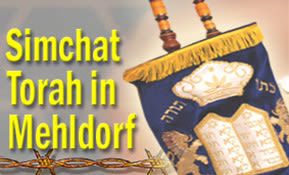
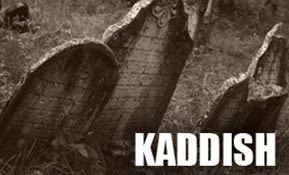

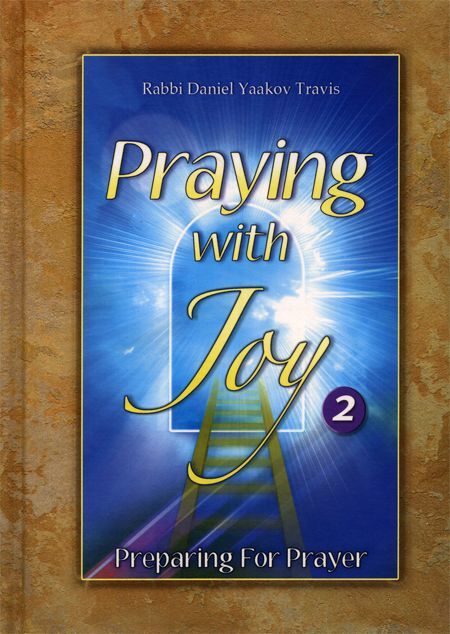
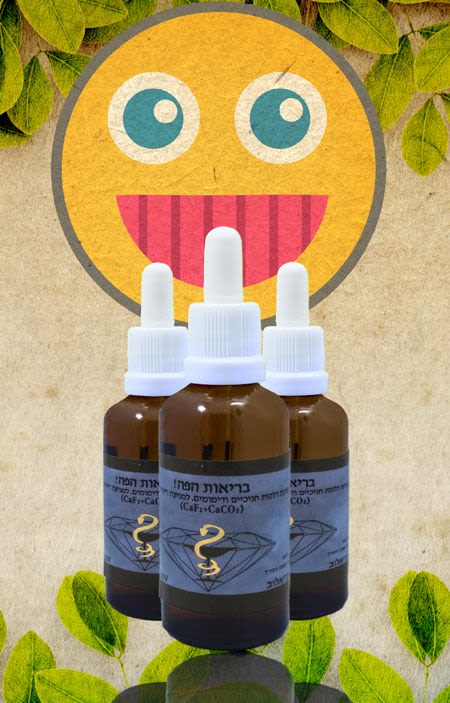
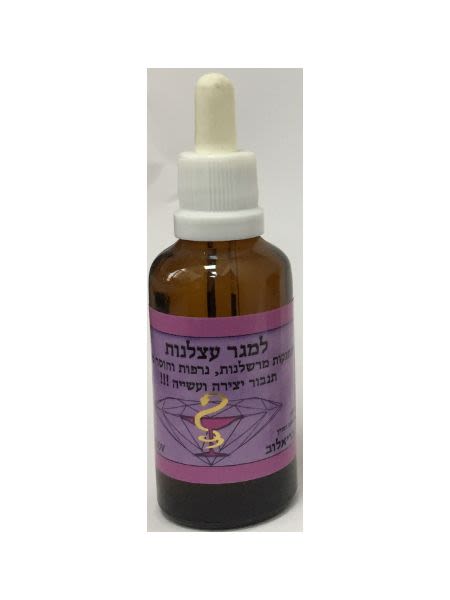

Tell us what you think!
Thank you for your comment!
It will be published after approval by the Editor.